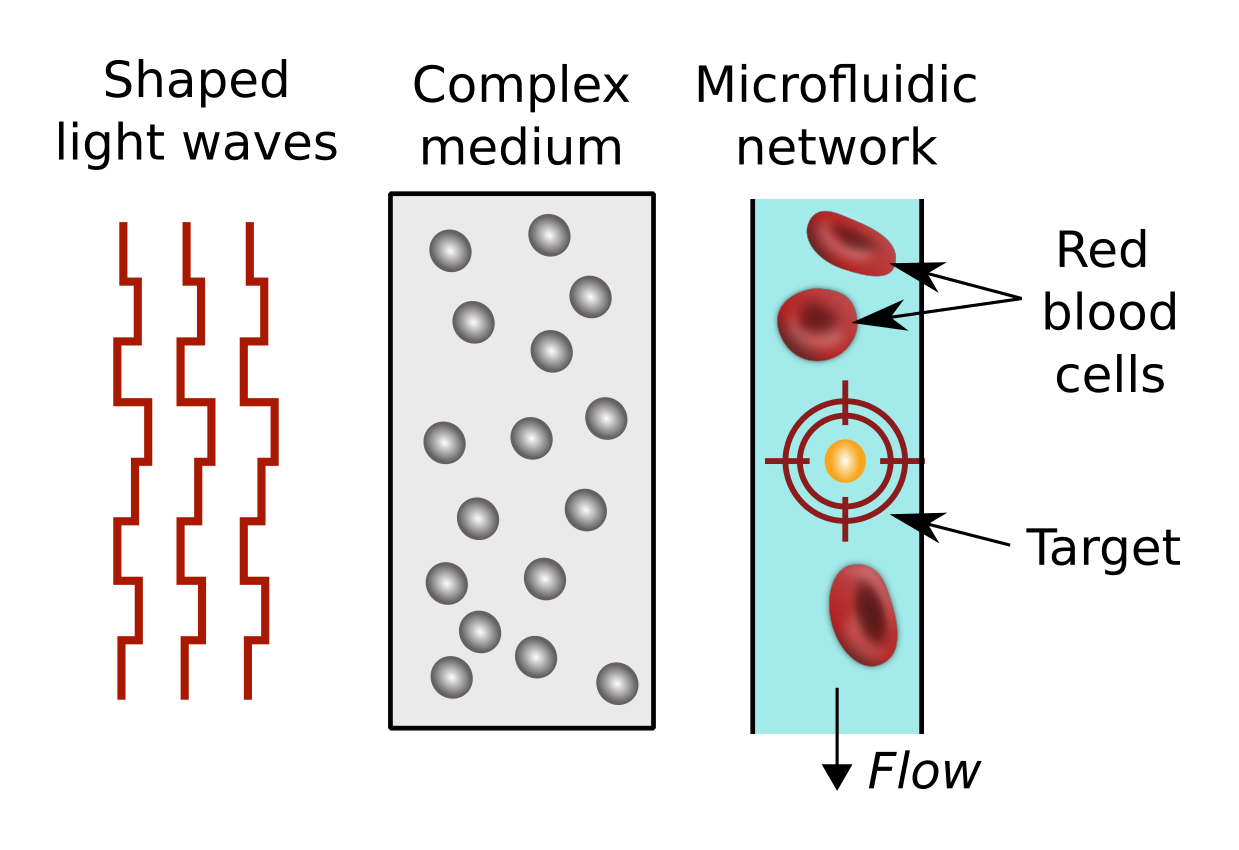- Share
- Share on Facebook
- Share on X
- Share on LinkedIn
Recruitment

PhD proposal, 2024-2027. Funding already secured.
Supervisors: Dr. Dorian Bouchet and Prof. Emmanuel Bossy
Project description
Light propagates in a simple way in homogeneous media such as vacuum and air, which allows our brain to easily interpret optical information captured with our eyes. However, it remains extremely challenging to perform optical imaging when light propagate through complex media. For instance, it is very difficult to monitor biological processes such as viral infections in living organisms, because light is scattered by surrounding biological tissues in an uncontrolled way. This challenge motivates us to get a better fundamental understanding of how light propagates in complex media.
In the last decades, the possibility to generate shaped light waves has been widely employed to focus light onto target objects hidden behind complex scattering media. However, these techniques typically require to label the targets using fluorescent molecules to be used as guidestars, which is often not possible to achieve in practical applications. This PhD project will now tackle the following question: how can we shape light in order to optimally detect unlabeled moving targets, and selectively focus light on these objects? On the conceptual side, the project associates tools from wave theory and information theory in order to understand how to optimally extract information from the measured scattered waves, as needed to focus light on moving targets without the need of fluorescent molecules. On the experimental side, the project involves the development of a proof-of-principle system based on red blood cells flowing in a microfluidic network, that will be hidden behind a complex scattering medium. The goal of this experiment will be first to detect the presence of a nanoparticle among red blood cells, and then to selectively focus onto this particle.
Profile of the candidate
The candidate must have a Master’s degree in Physics or Engineering. He/she needs to be motivated in (i) learning new concepts in physics and (ii) applying them for the experimental development of a new kind of optical microscope.
References
- D. Bouchet et al., Physical Review Letters 127, 253902 (2021)
- S. Gigan et al., Journal of Physics Photonics 4, 042501 (2022)
Download
phd_proposal_light_focusing_en.pdf (PDF, 1.23 MB)
Contact
Dorian BOUCHET
OPTIMA team
dorian.bouchet univ-grenoble-alpes.fr (dorian[dot]bouchet[at]univ-grenoble-alpes[dot]fr)
univ-grenoble-alpes.fr (dorian[dot]bouchet[at]univ-grenoble-alpes[dot]fr)
- Share
- Share on Facebook
- Share on X
- Share on LinkedIn